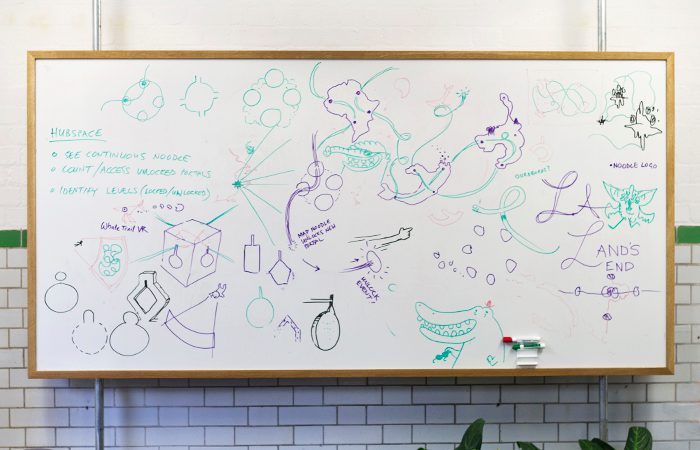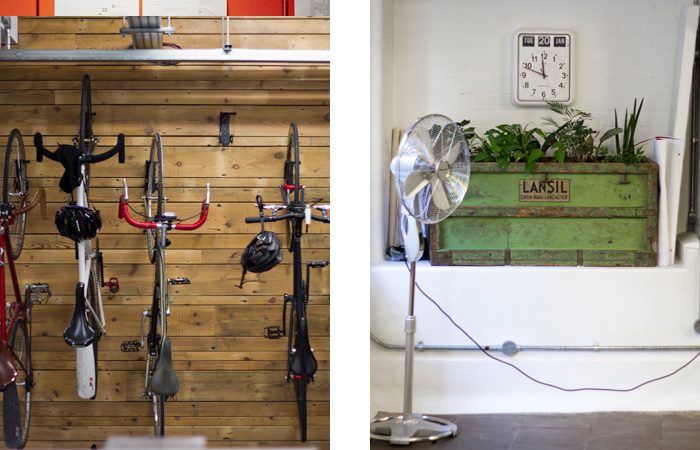ustwo
Founded: 2004 Staff: 225 Based: London, Malmo, New York, Sydney Notable clients: Google, Sony, Barclays, Tesco Website: ustwo.com
To walk into ustwo’s east London studio is to walk into the epitome of a “creative” workplace – it’s fun and it’s a little off-the-wall. But don’t be fooled by your first impression because there’s a seriously talented team behind the apparent silliness. Whether it’s making Sony’s Xperia apps feel warm and inviting, developing Channel 4’s YouView portal or creating the user experience for Tesco’s Hudl tablet , ustwo is one of the most respected design agencies working today. Over and above that commercial portfolio they also have a dedicated games division which most famously produced Monument Valley , the ludicrously addictive adventure which sold some 2.4 million copies and scooped Apple’s Design Award.

“ustwo started because we wanted to use technology in a creative and innovative way,” says Nicki Sprinz. “We are passionate about creating new products and services which make a genuine difference to user's lives and a valuable contribution to the world.”
This includes both new products which “unlock new value, create new user behaviours and disrupt the status quo” and working with clients on existing products “that need a rethink.”
Each process begins with the user. “User-centred thinking is our guiding star – we don’t apply a one-size fits all approach,” Nicki says. “Design should of course be both functional and beautiful, purposeful yet emotional. The type of work and the functional thinking we’re known for has always considered the user journey and the purpose of the design, as well as aesthetics. But in digital product design, functionality often carries a far greater risk if you get it wrong.”
The key thing is to contextualise the design challenge – and subsequent solution – in a wider business context. Nicki believes digital product design has quickly developed its “own form of conventional thinking” and that ustwo excel in bringing clients away from this tick-box mentality.
“Digital for digital’s sake doesn’t solve real business problems or meet genuine user needs. Disrupting the status quo isn’t what an app does and feels like for a user – but instead how a client forms a team and culture to develop the product. It’s about helping to guide and establish an external mindset internally.
She goes on: “A product can help shape the way that users behave and interact with a brand and business. It’s the sort of stuff that historically brands spent tens if not hundreds of millions of pounds and decades trying to do. A single digital product can transform the relationship on both a behavioural and commercial level, generating great returns to a business. It’s no longer an experiment or the responsibility of the innovation director, but a core aspect of how businesses work.”

This holistic, long-term of way looking at digital design has been boosted by us two’s experiences launching their own companies. Developing the online ticket service Dice for example, has given them the dual insight into being both client and product team.
“We’re in the rarefied position of understanding how to prioritise all aspects of the business in order for it to succeed. Funnily enough, we’re now feeling some empathy for previous client decisions, as we also have to make some of the same tough calls for our products for the good of the business. By taking this insight back into the core business, we’re definitely finding ourselves in a stronger position to understand our clients’ own business landscapes and objectives.”
That’s not to say though that ustwo’s processes are longwinded or unwieldy. Their new Accelerator approach is a way of very quickly reimagining a brand’s core digital product needs – it recently produced an app for online hotel booking site LateRooms using this method.
With four studios in three continents, ustwo is well placed to comment on international differences. We’re often told that digital culture is pretty homogenised, but Nicki thinks it’s more nuanced than that.
“Within each market there are different levels of product mindset and mobile product maturity. Each brings its own challenges – for example, complexity and inclusiveness of the world’s most globalised market in London, dynamic and nimble forward thinking in Australia as well as Sweden, and the fast pace of technology development and consumer adoption in the US.”
Which brings us back to to Monument Valley , a game that was a massive success across the world. “It exemplifies what ustwo is all about,’ Nicki says, “simply bringing together a passionate team and letting them create something to be proud of.”
These self-initiated projects are an intrinsic part of how ustwo works. “They’re not commercial hobbies, marketing gimmicks or executive pet projects, but products of passion. Each has its own outcome, from a quick one day experimentation and learning exercise with 10 users, to commercially viable products enjoyed by millions.
“It’s nice to think that the freedom to experiment, learn and iterate on ourselves, just as we do on our products, makes us more enlightened and flexible in the way we work.”